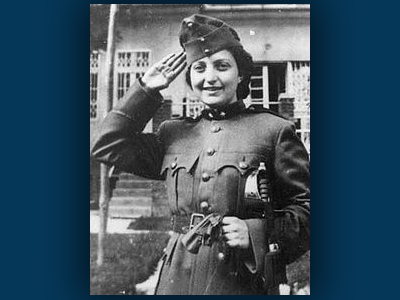November 7, 1944
Hannah Senesh (Szenes), the poet and Haganah fighter who parachuted into Nazi-occupied Europe to rescue Jews, is executed by a Hungarian firing squad in a Budapest prison courtyard.
Senesh, born in Hungary in 1921 into an assimilated Jewish family, was drawn to Zionism by the climate of antisemitism that existed in Budapest in the early 1930s. She made aliyah in 1939 and, after two years of agricultural study, settled on Kibbutz Sedot Yam, where she wrote many of her best-known poems, including “Toward Caesarea,” which as “Eli, Eli” is set to music in 1945 and has been covered by many singers since.
In 1942, as concern grew for the fate of European Jewry, including personally for her mother still in Budapest, Senesh joined a group of parachutists organized by the Haganah to rescue prisoners of war and to organize Jewish resistance. In 1944, she parachuted into Yugoslavia (where she wrote “Blessed Is the Match”), and on June 7 she was arrested by the Hungarian police as she attempted to cross into Hungary.
She was cruelly tortured but never revealed anything to her captors, and in November she was sentenced to death.
In 1950, her remains are taken to Israel and buried on Mount Herzl.
The following words are found written on the walls of her cell after her execution:
One – two – three … eight feet long
Two strides across, the rest is dark …
Life is a fleeting question mark
One – two – three … maybe another week.
Or the next month may still find me here,
But death, I feel is very near.
I could have been 23 next July
I gambled on what mattered most, the dice were cast. I lost.
For more about Senesh, click here.










